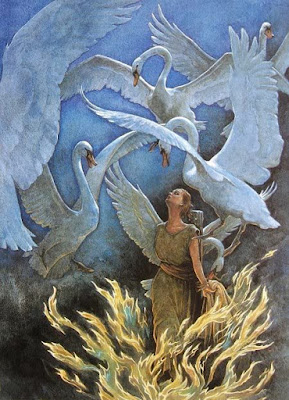 |
| This poster. There are better ones but I picked this one because it cracks me up. |
Title: Victor Frankenstein
Director: Paul McGuigan
Screenplay: Max Landis
Screenplay: Max Landis
Starring: James McAvoy, Daniel Radcliffe, Jessica Brown Findlay, Andrew Scott (or Prof. Xavier, Harry Potter, Lady Sybil, and Moriarty)
Release Date: 25 November 2015 (but it took FOREVER to release onto DVD)
Length: 1 h 50 min
Release Date: 25 November 2015 (but it took FOREVER to release onto DVD)
Length: 1 h 50 min
Rating: PG-13 for macabre images, violence and a sequence of destruction (that's seriously what it says)
Genre: Drama, Sci-Fi, Thriller
First, let's just get out of the way all the random BBC cameos. Was there anyone in this movie who hasn't worked for BBC? I don't think so. It was like a Muppet movie but with all BBC cameos. That was fun.
Second, the physical appearance of Frankenstein's Monster. (It's probably not a SPOILER that the Monster gets created, but if you want the reveal of its physical appearance to be a surprise, skip this paragraph.) This is always a vital but difficult aspect of any Frankenstein adaptation: how to portray the Monster. Obviously, the most iconic is Boris Karloff's uncanny blend of life and death in the 1931 black and white Frankenstein. Other adaptations have gone out of their way to avoid making the Monster look too much like Boris Karloff's, but it's nearly impossible to replace an icon, and no other adaptations have ever succeeded in supplanting Karloff's Monster's place in pop culture. The makers of Victor Frankenstein obviously understood this, and so they didn't try to replace Karloff's Monster: they built on it. Frankenstein's Monster in this film is reminiscent enough of Karloff's to evoke that cultural touchstone in the viewer's mind, but different enough not to look like a direct copy. I found that stroke brilliant and sensitive. (Also the moment when someone mispronounced Frankenstein's name as "Fronk-in-shteen" = score.)
Thirdly, I really liked the focus on Igor as another of Victor Frankenstein's "creations." Since the focus of this movie wasn't on the Monster but rather on Igor, the makers of the film had to find another way to evoke the Frankenstein creation myth, and I thought it was very well done with the character of Igor. Victor took him from the circus and changed him from a misused, animalistic hunchback to a civilized, refined human being. At one point in the film, Victor claims that he created Igor. We can debate whether or not that's strictly true - just as we can debate whether it's true for Frankenstein's Monster.
The setting, costumes, visuals, and feel of the movie were imaginative and fun. It had that steampunk fantasy feel, but not to the point where it was overdone. I probably could have done without the demon monkey monster, but there had to be some element of horror in the film (since it was Frankenstein) so I guess maybe we needed the demon monkey for scares; the rest of the film was a little morbid but not really frightening.
On to the acting. James McAvoy and Andrew Scott (the film's villain) are both fantastic actors, and it shows no matter what role they're in. McAvoy was perfect as the obsessive mad scientist and Scott was great as the similarly obsessive God-fearing policeman. Is there a mirroring going on there? I hadn't thought of that. That's kind of cool.
Jessica Brown Findlay (of Downton Abbey fame) is also great, though I'm not sure the role really let her show off her full acting talent, but that's OK. I can't exactly say the same thing for Daniel Radcliffe. I love him but I'm not going to lie and say he's a great actor. Harry Potter he could do, and did great, but this role naturally demanded a large spectrum of emotions and transformation, and Radcliffe just isn't really suited to that. A more seasoned and skilled actor could have played the role with about twenty times more pathos, complexity, ambiguity, and depth.
Also, the relationship between Igor and the female lead (played by Findlay) was a little hard to swallow. I can see them being friends, definitely, but it was hard for me to believe that Findlay's gorgeous and intellectually mature character would want to have a romantic relationship (and a bit more than that, too) with Radcliffe's sympathetic but rather flat character. That said, I liked the relationship that existed between Frankenstein (McAvoy) and Igor (Radcliffe). That one was a little more believable, and pretty well played overall.
Lastly, a small complaint: why does Victor Frankenstein always have to have a neglectful father and a brother who died young? Can we get some more creative plot points, please? It's becoming boringly predictable. I know not every Frankenstein adaptation has these elements, but most of the ones I've seen/read recently have. The dead brother plot point was well done in Kenneth Oppel's Frankenstein prequels, but now it's just getting to be a cliche. Frankenstein's brother doesn't have to die for him to be interested in creating life. Maybe he's just naturally curious. Or maybe there's some other reason; we can try to be a little more original than that.


